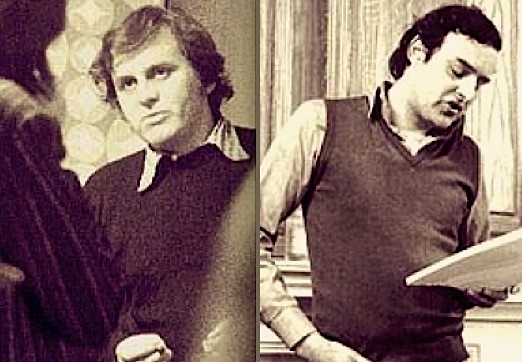
Richard Caddel and Peter Quartermain on British & Irish poetry since 1970
From Jacket #4 (1998)

“A Fair Field Full of Folk”: OTHER British and Irish Poetry since 1970
The British Isles have long been, self-evidently, crowded, complex, and packed with chaotic overlays of cultures — local, imported or created — which develop and intermix constantly. Langland's fourteenth-century “fair field full of folk” was already an intensely plural society, where elements of Saxon, Norman and Cymric were evident alongside each other, with strong elements of Latinate church culture, and, never far away, mainland European culture jostling alongside the other elements of linguistic mix. Diverse cultures sometimes conflict violently, or sometimes make uneasy alliances, and sometimes, perhaps by chance, give rise to the creation of new forms or achievements. About the only thing which is not possible in such a pluralistic, fragmenting, evolving society is a unitary, closed-system approach to culture, an insistence on a single “great tradition” which can justify any degree of cultural domination. And yet at present the organs of this culture — from opera and literature to government — remain unshakably monolithic and centralised: to look at the central products of this culture is to be reminded just how assertive the “mainstream” has been, and how marginalised its alternatives have seemed at times.
It is not the function of this introduction to describe in detail the development of this "mainstream," nor is it our intention to dismiss it as devoid of worth. However, it is necessary to suggest why it has appeared such an alienating experience for so many of the writers here, and why, finally, most of them reject it: “mainstream” in this context may be said to include the narrow lineage of contemporary poets from Philip Larkin to Craig Raine and Simon Armitage, and encompassing their attendant "collectives" (Movement, Martians, New Generation). Generalisation about such (often nebulous) groups is fraught with difficulties, but it nevertheless holds that in each case the typical poem is a closed, monolineal utterance, demanding little of the reader but passive consumption. Such a cultural vision has obviously been privileged not simply by the major publishing houses, but also by their attendant infrastructures of reviewing journals, “literaries” and other elements of the media. The “mainstream” is, for most of the United Kingdom population, for most of the time, the only perceptible stream.
[read more of this article]